Prof Wang Di, associate director of the Institute of Advanced Studies in Humanities and Social Sciences and chair professor of the Department of History at the University of Macau (UM) , has been studying history for more than four decades. He says: ‘Macao is a small historical city where East meets West, and as a result, the university has a multicultural environment that is conducive to historical studies.’ Prof Wang’s research focuses on the everyday lives of ordinary people. Having lived in Macao for six years, he has produced fruitful results in his work.
Studying the Everyday Lives of Ordinary People
Prof Wang was born in Chengdu, Sichuan province. In 1978, he was admitted to the Department of History at Sichuan University. He graduated with a master’s degree in 1985 and stayed on to teach. He travelled to the United States in 1991 to serve as a visiting scholar at the University of Michigan. He completed his PhD at Johns Hopkins University in 1998. He was a professor of the Department of History at Texas A&M and the president of the Chinese Historians in the United States (CHUS). In 2015, Prof Wang joined UM, serving as the head of the Department of History until this summer. Since moving to the US for his PhD in the 1990s, Prof Wang’s research has focused on the everyday lives of ordinary people. With a microhistorical approach, he studies street discourse and observes public spaces, where ordinary people’s daily life experiences, social changes, and financial incomes and expenditures all become the vehicle for displaying the bustle and hustle of urban life and even the rise and fall of a nation.
Doing Historical Studies in Macao
Prof Wang credits the international nature of the university and its multicultural environment for the fruitful results in his work. ‘Macao is a city with over 400 years of Chinese and Western history, and it has served as a ‘bridge’ between China and the West,’ he says. ‘As the only international comprehensive public university in Macao, UM has an inherent advantage that makes it an ideal place for historians to do research.’
He continues: ‘In the 17 years I taught in the US, I only produced two books in English because I had difficulty collecting data and topics due to geographical constraints. But after joining UM, many of the topics I had previously thought of became possible. The past five years are my most productive period in 30 years. I published six books in Chinese or English, five papers in English, and 16 papers in Chinese.’
During his years at UM, Prof Wang has published two important books, namely Violence and Order on the Chengdu Plain: The Story of a Secret Brotherhood in Rural China, and The Teahouse under Socialism: The Decline and Renewal of Public Life in Chengdu, 1950-2000. Both books received popular and critical acclaim. The former not only won the 2018 Academic Excellence Award from the CHUS and the 2018 Best Book Award from the Association for the Studies of Chinese Secret Societies, but was also chosen for various top ten book lists for 2018. The latter received the Best Book Award from the Urban History Association in the US. In his two other books—The Lost Ancient City: Everyday Life and Memories in Late-Qing and Early Republican Chengdu, and Chengdu under the Microscope, Prof Wang examines the changes in the lives of ordinary people, especially the lower classes, and how the enormous changes in society affected the institutions and habits of each class. The former was chosen for the ‘Hall of Fame – Top Ten Non-Fiction of 2019’ by Cover News, and Prof Wang was included in the ‘Hall of Fame – Top Ten Writers of 2019’.
Historical Studies Requires a Spirit of Exploration
Prof Wang believes historical studies is a process of constant exploration. He recalls a time when he found a batch of precious, handwritten documents. With much difficulty, he managed to purchase the scanned copies of these documents with research funds. ‘Historical studies requires that you look for clues carefully,’ he says. ‘If you find any clues in the process, you have to follow them up and go to the site immediately. If the data is not there, the trail is cut off. You can only write history if you have the data, otherwise it would be like asking a housewife to cook a meal without giving her any rice.’
Critical thinking is another key ingredient in historical studies, according to Prof Wang. ‘It is like removing the dust of history to bring the truth to light,’ he says. ‘It is a long process because you have to analyse and discover authentic history and find truly valuable ideas. As a historian, you have to keep collecting data and critiquing it in order to produce quality work.’
Text: Judite Lam
Photo: Jack Ho, Hasen Cai, with some provided by the interviewees
Chinese Editor: Ella Cheong
Source: E-My UM
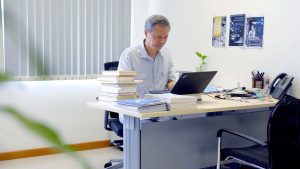
Prof Wang Di
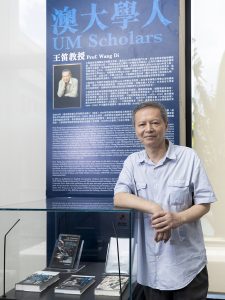
Prof Wang Di has published six books in Chinese or English
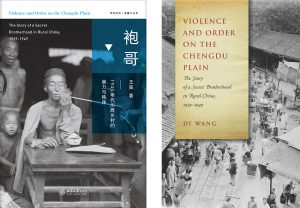
The covers of the Chinese and English versions of Violence and Order on the Chengdu Plain: The Story of a Secret Brotherhood in Rural China
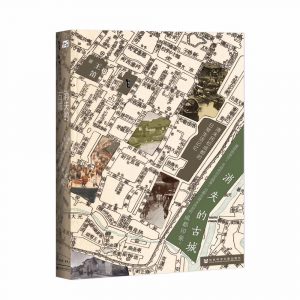
The cover of The Lost Ancient City: Everyday Life and Memories in Late-Qing and Early Republican Chengdu
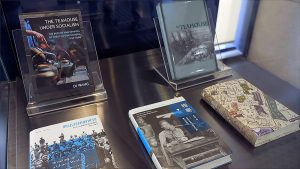
Some of Prof Wang Di’s works are on exhibition in the University Gallery
